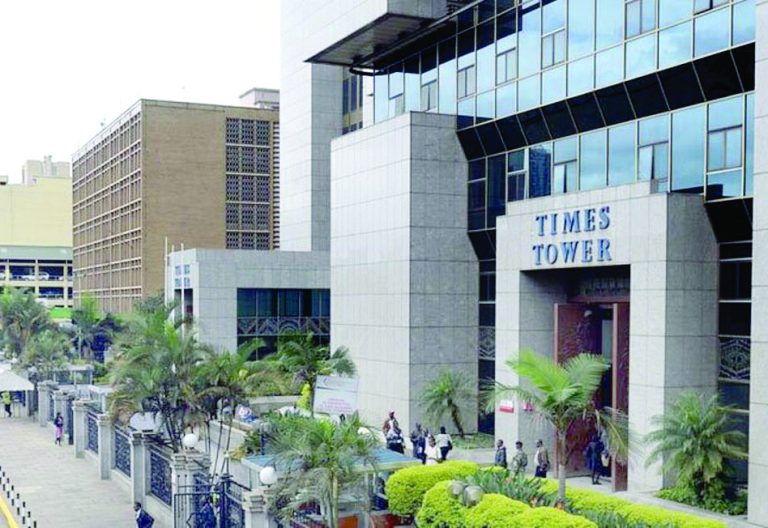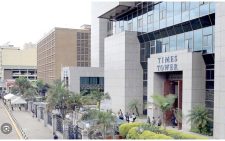Forex tax exemption eases costs for businesses, but strains KRA’s collections

Kenyan businesses and consumers have got a major reprieve after the Tax Appeals Tribunal (TAT) ruled that foreign exchange (forex) margins are exempt from excise duty.
This decision overturns the Kenya Revenue Authority’s (KRA) long-held position that profits from currency conversion qualify as taxable fees, potentially lowering transaction costs while complicating the tax agency’s revenue collection efforts.
The verdict eliminates a 20 per cent excise duty on forex margins, reducing costs for cross-border trade, remittances, and international transactions.
Banks and forex bureaus, no longer required to absorb or pass on the tax, may adjust their pricing to attract clients, intensifying competition in the financial sector. However, the verdict poses fiscal challenges for KRA, which now faces a revenue gap that may lead to stricter enforcement of other levies or the introduction of new taxes.
Audit firm PwC said the ruling underscores the importance of accurately defining taxable transactions and reaffirming tax law principles, ensuring that levies are imposed strictly based on the wording of statutes rather than broad interpretations.
“This decision significantly enhances certainty and clarity for financial institutions by confirming that forex margins from currency conversion transactions are not classified as ‘other fees’ and are therefore not subject to excise duty,” PwC said in a report analyzing the ruling.
Accurate description of deals
For businesses and retail traders, the exemption eases the financial strain of currency exchange. Small and medium-sized enterprises (SMEs) reliant on cross-border transactions stand to benefit from lower forex costs, improving cash flow and competitiveness. Additionally, the reduced cost of remittances could boost inflows from Kenyans abroad, strengthening the country’s foreign currency reserves.
The decision could prompt banks to adjust their forex pricing structures. Currently, institutions like Absa and Co-operative Bank maintain forex margins of 10.5 percent and 7.7 percent, respectively—far higher than forex bureaus, where margins range between 1.36 percent and 2.7 percent. With the tax burden lifted, increased competition could lead to more favorable exchange rates, benefiting corporate clients and individuals exchanging currency for travel, education, and business. The decision could also improve liquidity in the forex market, making foreign currency more accessible.
While the ruling promotes market efficiency, it disrupts KRA’s revenue stream at a time when the agency is under pressure to meet collection targets. Already, KRA has tightened tax measures elsewhere, raising excise duty on imported sugar from Sh5 to Sh7.5 per kilogram and increasing cigarette taxes from Sh3,825.99 to Sh4,100 per thousand sticks.
Bolstering tax collection
The tax agency has also widened its net by imposing levies on digital services offered by non-residents, subjecting them to excise duty, VAT, and income tax. While these measures bolster revenue, they risk raising costs for businesses in Kenya’s growing tech sector.
Despite the revenue concerns, the ruling is unlikely to trigger immediate fiscal instability. The Central Bank of Kenya (CBK) has maintained robust forex reserves, currently at $10.001 billion (about Sh1.29 trillion), equivalent to 5.1 months of import cover, providing a buffer against short-term shocks.
The Kenyan Shilling has shown resilience, with the USD/KES exchange rate averaging 129.3 in early 2025. However, analysts at Cytonn Investments project further volatility, expecting the Kenya Shilling to weaken to between Sh134.4 and Sh140.5 against the USD by year-end, driven by external pressures such as global interest rate shifts and fluctuating oil prices. The CBK’s interbank rate, currently at 10.64 per cent, reflects ongoing efforts to stabilize the currency, though forex reserves remain the primary cushion against depreciation risks.
Historical perspective
While the TAT’s ruling aligns with Kenya’s historical tax policy, where forex margins have traditionally been excluded from excise duty to avoid double taxation, it also deepens the tension between market liberalization and the government’s revenue collection needs.
KRA may respond with heightened enforcement of alternative taxes, potentially straining compliance among businesses.
Already, mandatory electronic tax invoicing (eTIMS) and reverse invoicing for small businesses are being rolled out to curb evasion, though they require significant system upgrades and staff training.
Additionally, recent court interventions, such as the suspension of excise duty adjustments for petroleum products due to procedural flaws, highlight the ongoing friction between the tax authority and the private sector.















